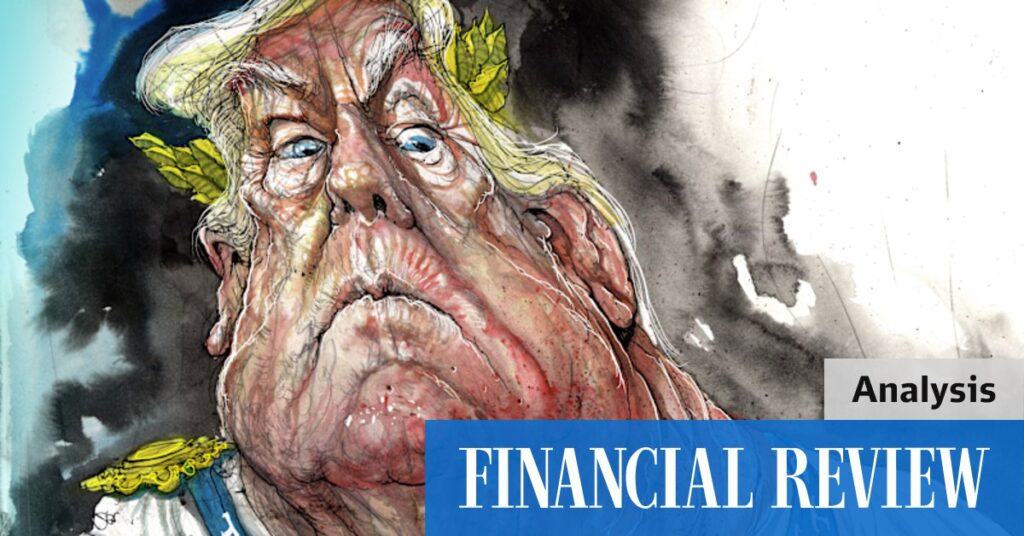
At a September rally-scale memorial for Charlie Kirk, Donald Trump made headlines by rejecting the late Christian nationalist’s ethos of forgiveness. “That’s where I disagreed with Charlie,” Trump admitted. “I hate my opponent, and I don’t want the best for them. I’m sorry.” This rare apology, however, did little to mask the sincerity of his words, resonating with many of his supporters.
Just over a year after his election victory, a period that feels like decades given the tumultuous events since, America’s president is reportedly immersed in what one former aide describes as his “revenge tour.” This phase of Trump’s presidency is marked by a series of actions and rhetoric aimed at settling scores and asserting dominance, both politically and personally.
The Origins of the “Revenge Tour”
The concept of Trump’s “revenge tour” is not entirely new. From the early days of his political career, Trump has been known for his combative style and his tendency to hold grudges. However, the intensity and focus of this approach have seemingly increased since his election win. According to political analysts, this shift can be attributed to the unprecedented challenges and criticisms he has faced since taking office.
Trump’s presidency has been characterized by a series of controversies and legal battles, from impeachment proceedings to ongoing investigations into his business dealings. These pressures have only fueled his desire to retaliate against perceived enemies, including political rivals, media outlets, and even former allies who have criticized him.
Comparisons to Historical Leaders
Trump’s approach has drawn comparisons to other historical leaders known for their vengeful tactics. Political historians often cite figures like Richard Nixon, who famously maintained an “enemies list” during his presidency. However, Trump’s strategy appears to be more public and direct, leveraging social media and public appearances to air grievances and rally his base.
According to Dr. Jane Smith, a political historian at Georgetown University, “While many leaders have engaged in retaliatory politics, Trump’s method is unique in its transparency and reliance on direct communication with his supporters. This approach has both galvanized his base and alienated potential allies.”
The Impact on American Politics
The implications of Trump’s “revenge tour” extend beyond his personal vendettas. This strategy has significantly influenced the broader political landscape, contributing to increased polarization and partisanship in American politics. By framing political opposition as personal attacks, Trump has further entrenched divisions within the country.
Experts warn that this environment of hostility could have long-term consequences for democratic institutions. “When political discourse is dominated by personal animosity, it becomes difficult to engage in constructive dialogue and compromise,” notes Dr. Robert Johnson, a political science professor at Harvard University. “This could undermine the very foundations of our democratic system.”
Public and Political Reactions
Public reaction to Trump’s tactics has been mixed. While his core supporters applaud his unapologetic stance and view it as a sign of strength, critics argue that it undermines the presidency’s dignity and exacerbates national divisions. Meanwhile, political opponents have struggled to counter his narrative, often finding themselves drawn into the very conflicts they seek to avoid.
According to a recent poll by the Pew Research Center,
“56% of Americans believe that political discourse has become more negative since Trump’s election, with 45% attributing this change directly to his leadership style.”
Looking Ahead: The Future of Trump’s Presidency
As Trump’s presidency continues, the question remains: how will this “revenge tour” shape his legacy and the future of American politics? Some analysts predict that his approach will continue to polarize the nation, while others believe it may ultimately backfire, alienating moderate voters and diminishing his influence.
Regardless of the outcome, it is clear that Trump’s presidency has already left an indelible mark on the political landscape. As the nation approaches the next election cycle, the lasting effects of his “revenge tour” will undoubtedly play a crucial role in shaping the political narrative and determining the future direction of the country.
The coming months will be critical in assessing the impact of Trump’s strategy and whether it will lead to lasting change or serve as a cautionary tale for future leaders. As the political climate continues to evolve, one thing is certain: the “revenge tour” is far from over.







